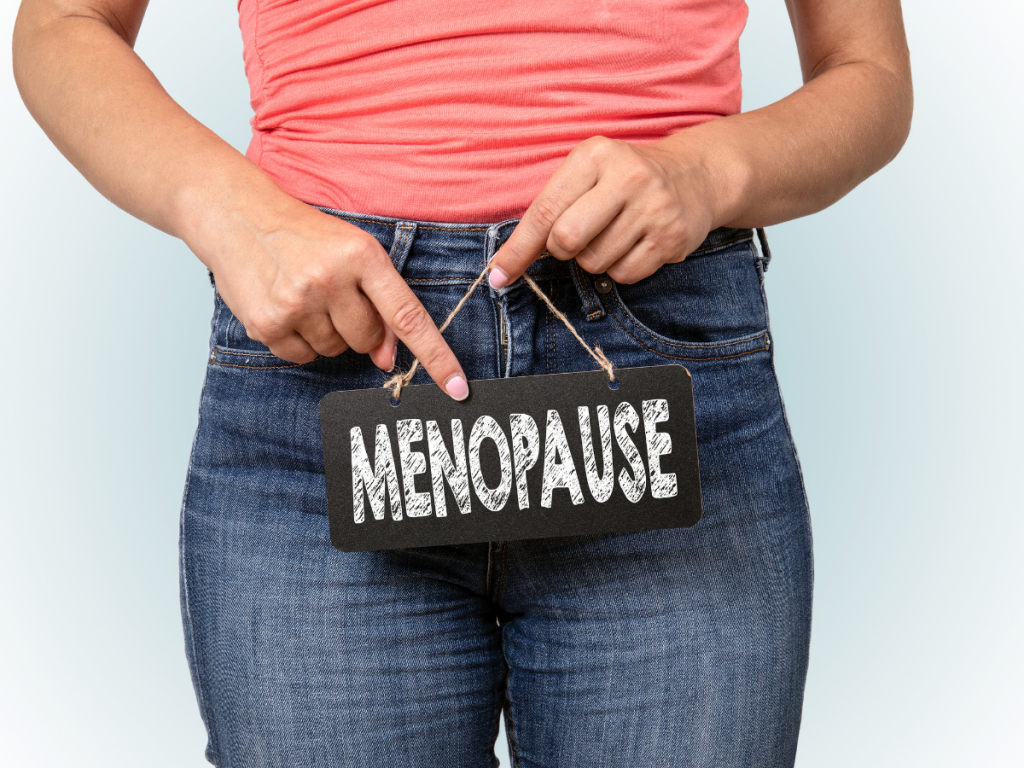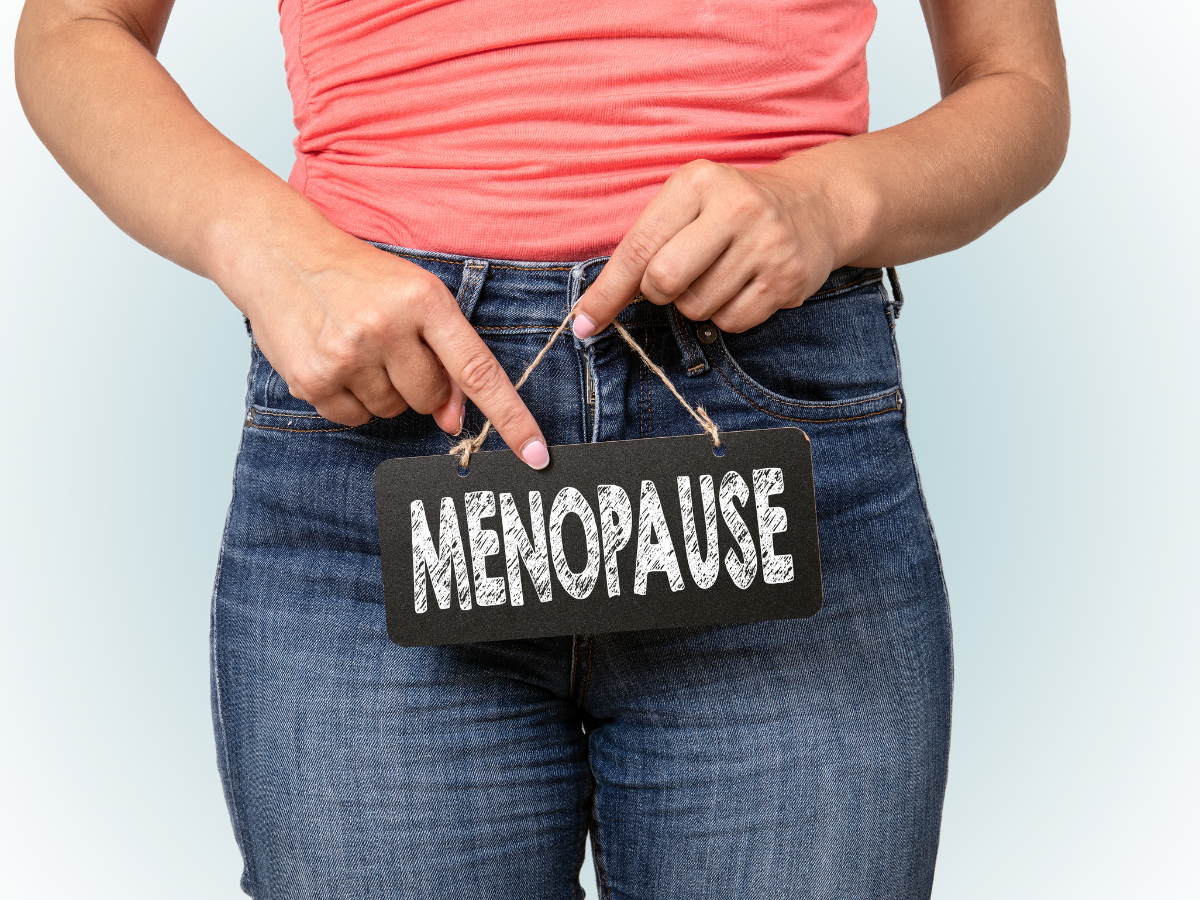Menopause is a natural biological process that signifies the end of a woman’s reproductive years. While it is a normal phase of life, it can bring about various physical and emotional changes. Recognizing the initial signs of menopause is essential for women to navigate this transition with greater ease. In this article, we’ll explore the first signs of menopause, shedding light on what women can expect during this phase.

- Irregular Menstrual Cycles
One of the earliest indicators of menopause is changes in menstrual cycles. Women may notice irregular periods – they might become shorter or longer, heavier or lighter, and the time between periods could vary. These irregularities can be attributed to fluctuations in hormone levels, particularly estrogen and progesterone.
- Hot Flashes and Night Sweats
Hot flashes and night sweats are hallmark symptoms of menopause. These sudden and intense waves of heat can cause redness, sweating, and discomfort, often accompanied by a rapid heartbeat. Hot flashes during the night, known as night sweats, can disrupt sleep patterns and lead to fatigue.
- Mood Swings and Emotional Changes
Hormonal shifts during menopause can impact mood regulation, leading to mood swings, irritability, and emotional changes. Many women report feeling more anxious or depressed during this phase. These emotional fluctuations can be challenging to manage, but recognizing them as part of the menopausal process can be reassuring.
- Changes in Sleep Patterns
Menopause can also influence sleep quality. Alongside night sweats, hormonal changes can lead to insomnia or disrupted sleep patterns. Difficulty falling asleep and staying asleep can contribute to fatigue and daytime irritability.
- Vaginal and Sexual Changes
Declining estrogen levels can lead to changes in vaginal health, such as dryness and thinning of vaginal tissues. This can result in discomfort during intercourse and an increased risk of urinary tract infections. It’s important to communicate openly with healthcare providers to explore strategies to manage these changes.
- Decreased Fertility
As women approach menopause, their fertility decreases significantly. While it is still possible to become pregnant, the chances are much lower. Women who do not wish to conceive should continue using contraception until they are advised by a healthcare professional that it is safe to discontinue.
- Changes in Libido
Fluctuating hormone levels can also impact a woman’s libido. Some women might experience a decrease in sexual desire, while others might find that their libido remains unchanged or even increases. Open communication with a partner and seeking professional advice can help navigate these changes.
Recognizing the first signs of menopause is crucial for women to understand and manage the changes that come with this natural life phase. Irregular menstrual cycles, hot flashes, mood swings, sleep disturbances, vaginal and sexual changes, decreased fertility, and alterations in libido are all common indicators that menopause is approaching. By acknowledging and addressing these signs, women can take proactive steps to maintain their overall well-being and quality of life during this transition.
Remember, every woman’s menopause journey is unique. If you suspect you are experiencing the first signs of menopause, it’s recommended to consult a healthcare provider for guidance and support tailored to your individual needs. Embracing this phase of life with self-care, education, and open communication can empower women to navigate menopause with confidence and vitality.

